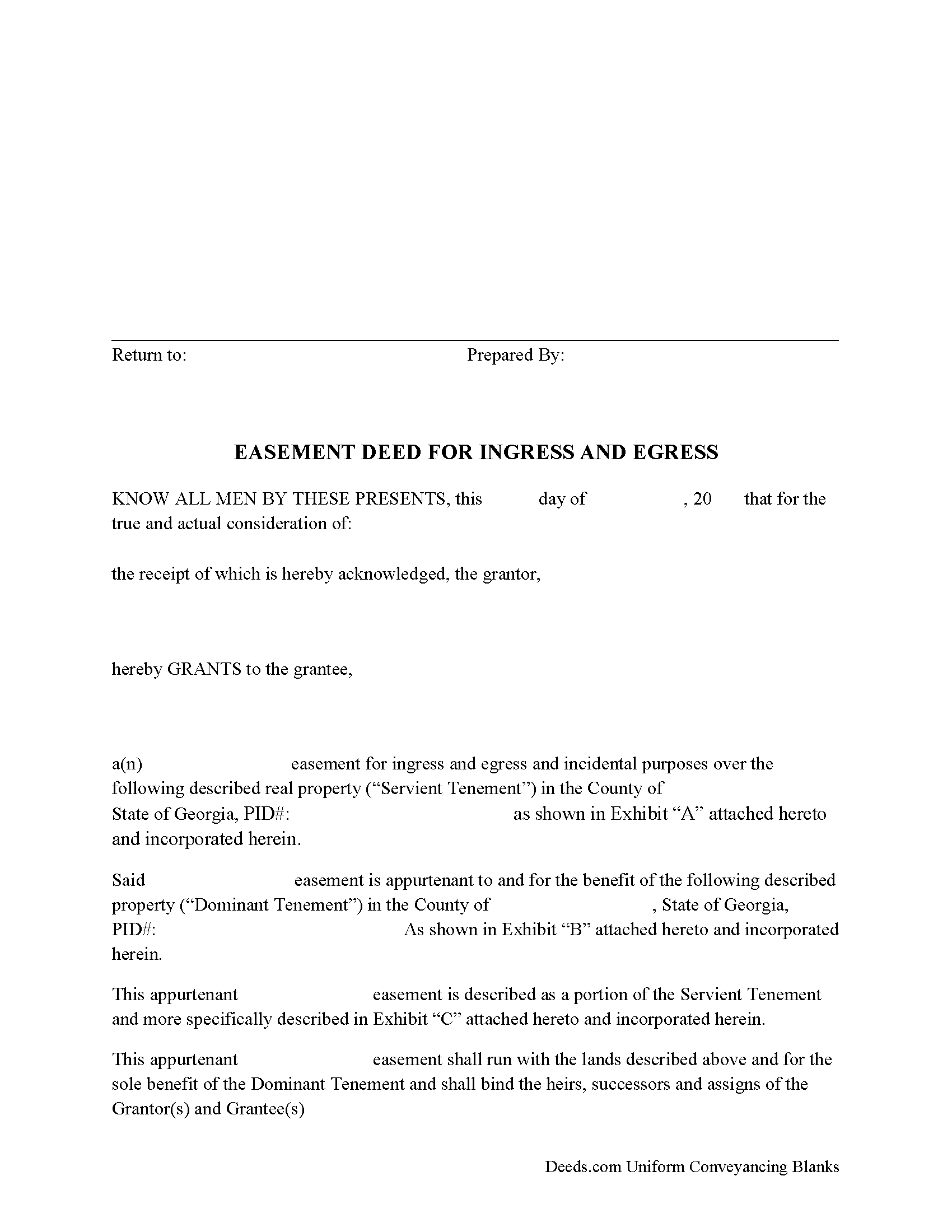Download Georgia Easement Deed Legal Forms

Georgia Easement Deed Overview

An easement can be created by conveyance in a deed. An easement is the right to use another person's real property for a specific purpose, and the easement deed is the instrument that creates this right. An easement in Georgia can be used for many purposes, including for granting the right of a private way over another's land, for the acquisition of light and air, or for boundary line agreements. Most easements will run with the land being conveyed. Additionally, an easement may be lost or forfeited by nonuse if the abandonment or nonuse continues long enough to raise the presumption of release or abandonment ( 44-9-6). An easement deed is subject to the same formalities as any other transfer of other interests in land in Georgia.
In order to be recordable, an easement deed must be signed by the grantor and must contain two witnesses, one of whom must be the notary with his seal attached. If one of the witnesses is not a notary, then there must be an acknowledgment by a notary attached to the deed ( 44-2-21 and 44-2-14). This pertains to easement deeds executed in Georgia as well as in other states. To authorize the recording of an easement deed executed in a state outside of Georgia, it must be attested or acknowledged before one of the officers listed in 44-2-21. If executed in Georgia, the easement deed may be attested by a judge of a court of record, including a judge of a municipal court, or by a magistrate, a notary public, or a clerk or deputy clerk of a superior court or of a city court created by a special act of the General Assembly. With the exception of notaries public and judges of courts of record, such officers may only attest such instruments only in the county in which they hold their respective offices ( 44-2-15).
Every deed conveying lands or affecting title to real property, such as an easement deed, should be recorded in the office of the clerk of the superior court of the county where the real property is located. Recording can take place at any time, but a prior unrecorded deed will lose its priority over a subsequent recorded deed from the same vendor when the purchaser takes such deed without notice of the existence of the prior deed ( 44-2-1). This is known as a race-notice recording act. Instruments affecting title to land that are required by law to be recorded in the office of the clerk of the superior court and which are against the interests of third parties who have acquired a transfer or lien binding the same property and who are acting in good faith and without notice will take effect only from the time they are filed for record in the clerk's office in the county where the property is located ( 44-2-2b).
(Georgia Easement Deed Package includes form, guidelines, and completed example)